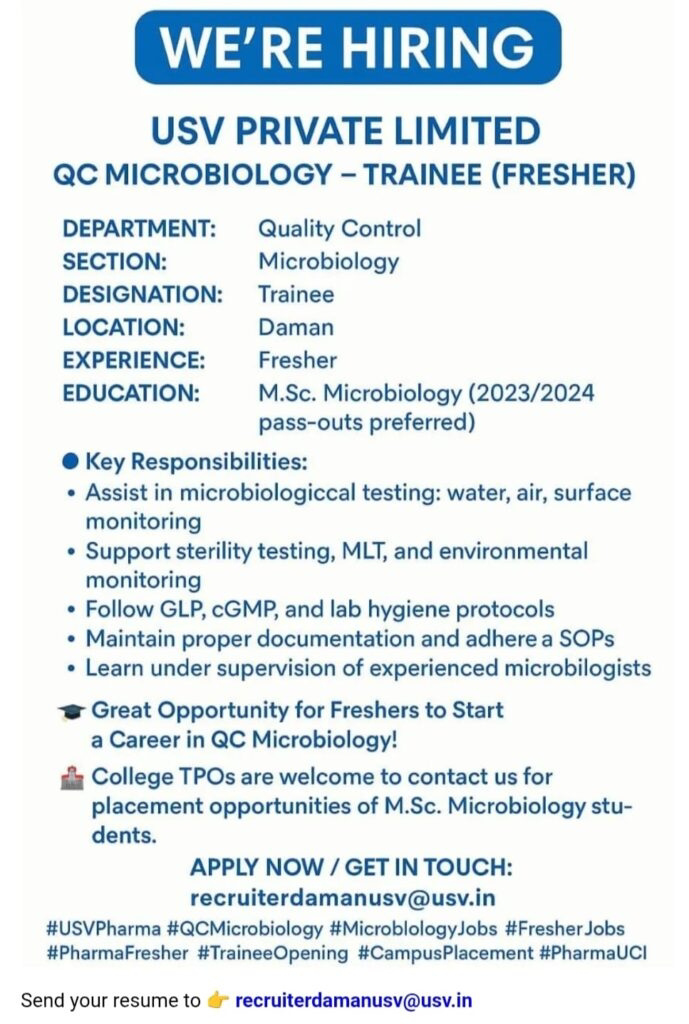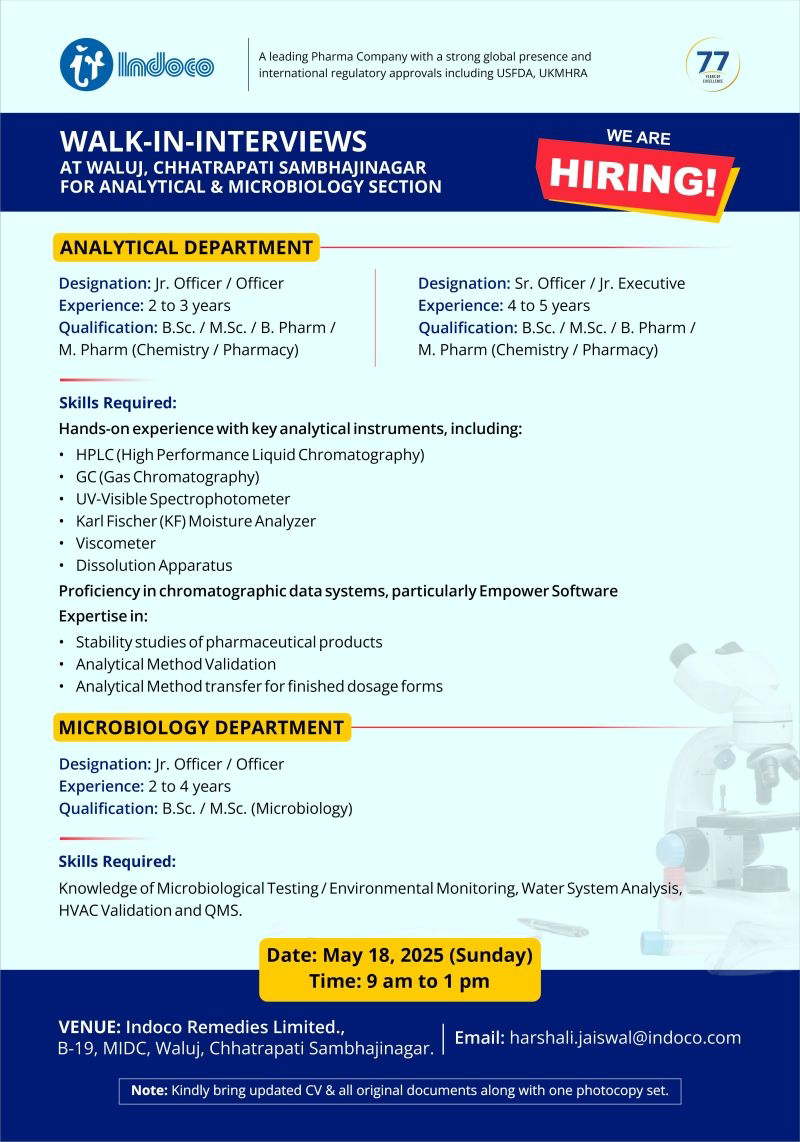Exciting Job Opportunity at Syngene: QC Microbiology Analyst Role in Bangalore
Are you a passionate microbiology professional seeking a career with a leading research-driven organization? Syngene, a global contract research and manufacturing company, is inviting applications for the position of QC Microbiology Analyst at its Bangalore facility. This is an excellent opportunity for individuals with an academic background in microbiology and a strong interest in quality control practices within the pharmaceutical or biotechnological sectors.
🔬 About the Role
The position of QC Microbiology Analyst at Syngene is ideal for candidates who are detail-oriented, methodical, and committed to maintaining the highest quality standards in laboratory practices. As part of the Quality Control team, the selected candidate will play a vital role in ensuring product integrity and regulatory compliance through precise microbiological testing.
📍 Job Location
- Bangalore, India
Located in India’s biotech hub, this location offers a thriving professional environment and ample career growth opportunities in the life sciences domain.
🎓 Qualification Required
- M.Sc. in Microbiology
Candidates with a postgraduate degree in microbiology are encouraged to apply. This role is particularly suited to those with a strong academic foundation and hands-on experience in microbiological techniques and protocols.
🌟 Why Join Syngene?
- Global Exposure: Work with a reputed organization that collaborates with top pharmaceutical and biotech companies worldwide.
- Cutting-Edge Technology: Be a part of a team that uses advanced technology and modern laboratories.
- Career Growth: Ample learning and development opportunities to advance your scientific career.
- Impactful Work: Contribute to the development of life-saving drugs and healthcare solutions.
📝 How to Apply
Interested candidates can click on the “Apply Now” button or visit Syngene’s official careers page to submit their application.
Kick-start your microbiology career with a role that makes a difference. Join Syngene and be part of a team that’s transforming global healthcare through science and innovation.





















